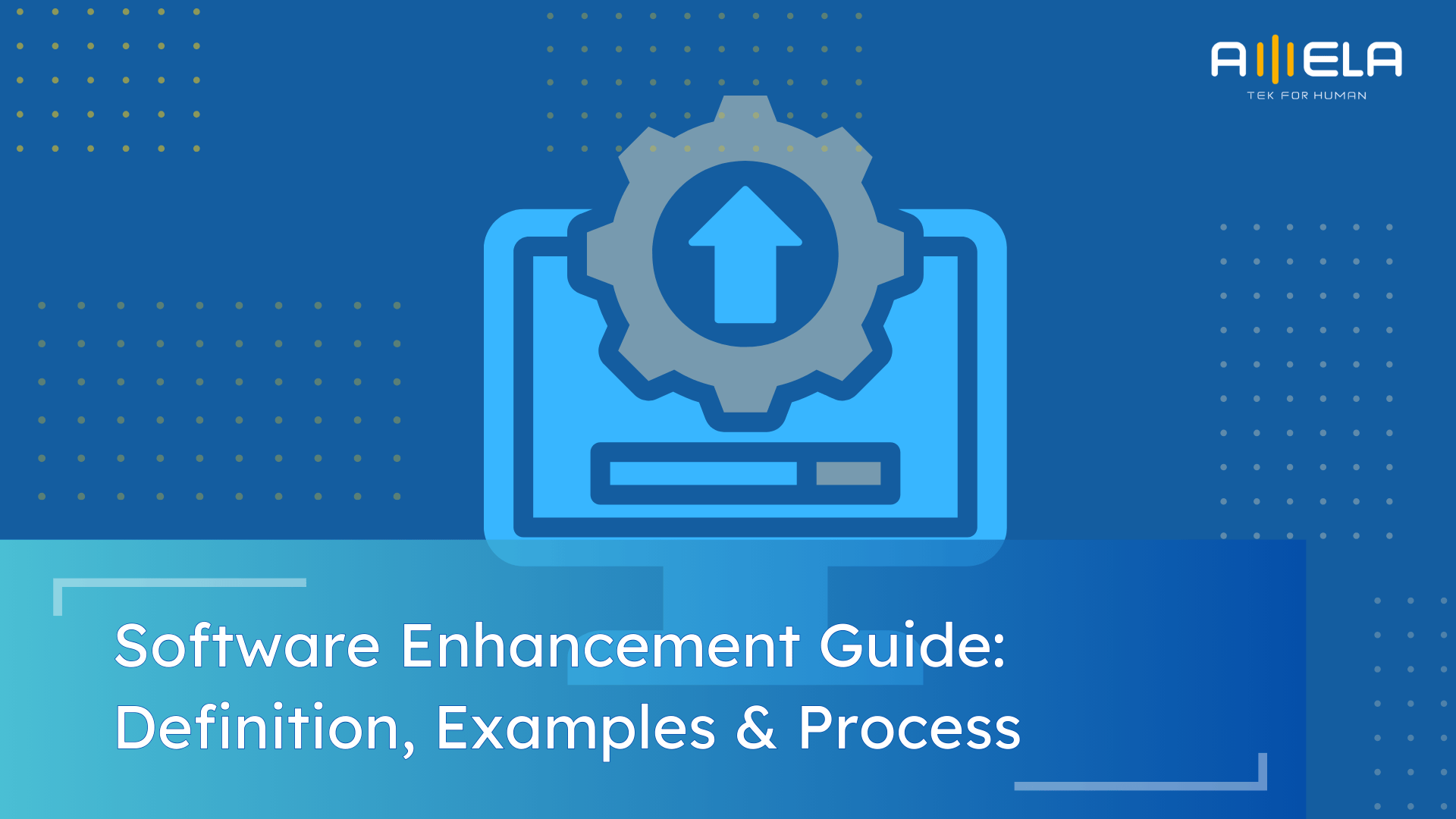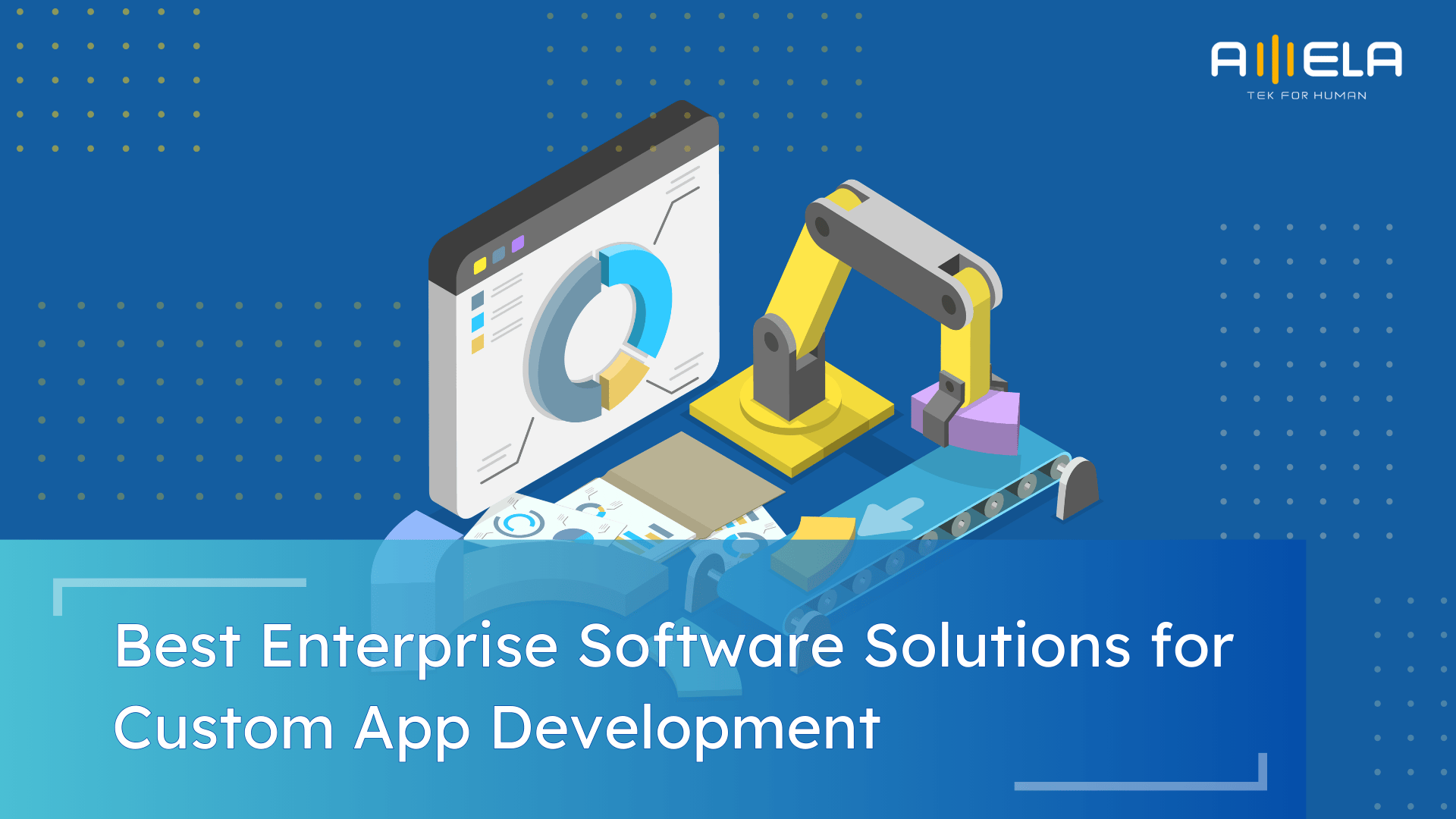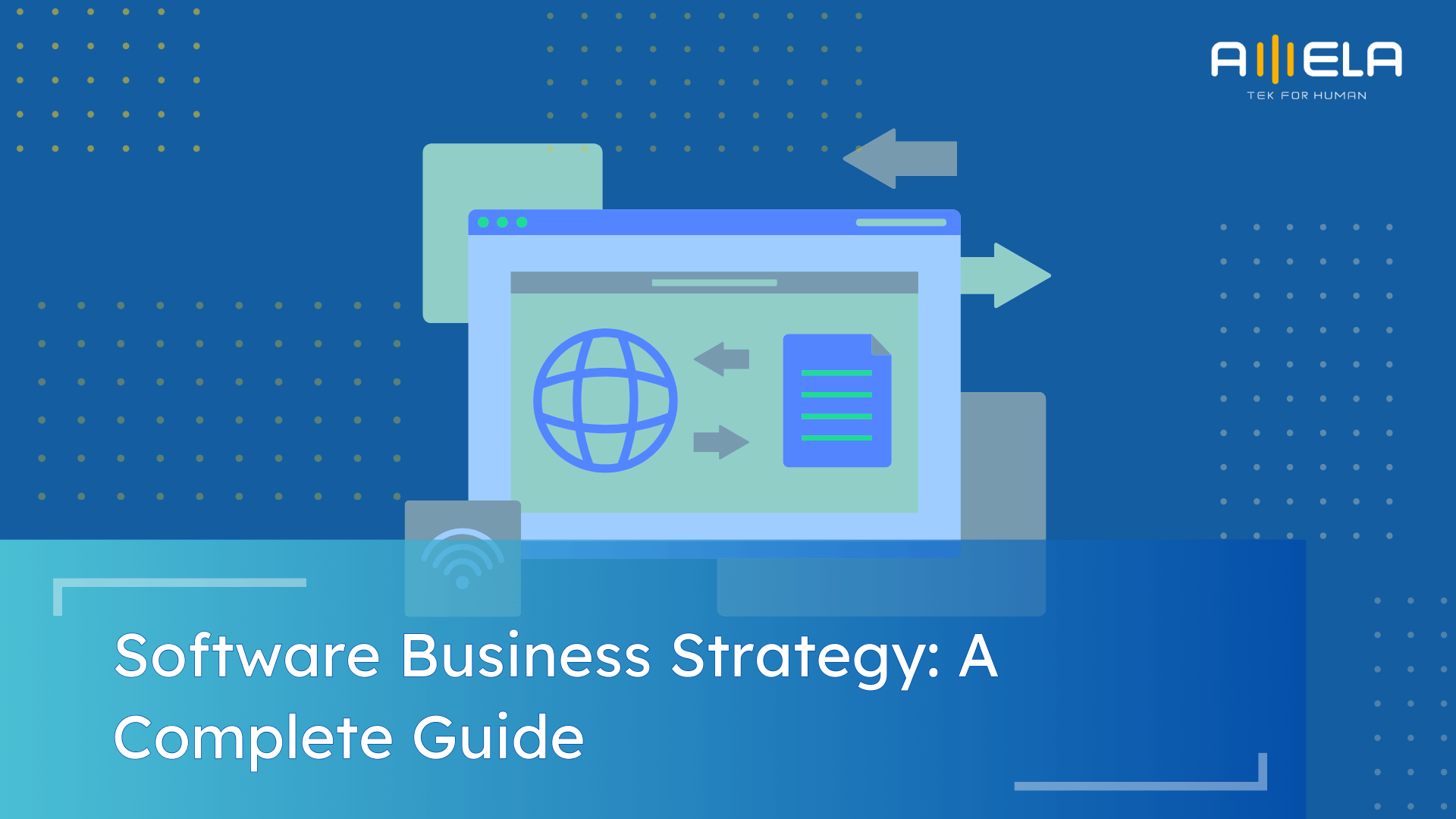Table of Contents
Artificial Intelligence (AI) is transforming industries across the globe. Among the sectors witnessing the most significant shift is software development. The impact of AI on software development is profound, offering both advantages and challenges to businesses looking to innovate. As companies aim to automate processes, reduce costs, and improve efficiency, AI becomes an essential tool.
This article explores the impact of AI on software development, its benefits, and limitations, and how businesses can harness AI-driven strategies effectively. Additionally, we will discuss the best approaches for AI software development, tools, and outsourcing AI development services.
Understanding the Impact of AI on Software Development
AI isn’t just a buzzword anymore — it’s quietly transforming how software gets built, tested, and maintained. From writing cleaner code to predicting project delays, AI is changing the daily rhythm of development teams. What used to take weeks of manual effort can now be done in hours — often with greater accuracy and consistency.
At its best, AI doesn’t replace developers; it amplifies them. It takes care of the repetitive, error-prone work so that engineers can focus on solving bigger, more creative problems. Let’s break down how this shift is happening across the software development lifecycle.
Smarter Code Writing and Generation
AI-powered tools have turned into reliable “pair programmers.” Platforms like GitHub Copilot, Amazon CodeWhisperer, and Tabnine use large language models trained on millions of code repositories to suggest snippets and complete functions in real time.
According to GitHub’s Developer Productivity Report, 88% of developers using AI coding assistants report higher productivity and 74% say they can focus more on solving larger problems rather than syntax fixes.
Instead of spending hours debugging small errors, engineers can focus on architecture, performance, and product logic. The result? Teams deliver more value in less time — without sacrificing code quality.
Automated Testing and Debugging
Testing used to be one of the most time-consuming phases in software development. AI has completely changed that.
Modern AI-driven tools such as Testim and Functionize automatically generate test cases, detect anomalies, and predict which components are most likely to fail. A 2024 study published on arXiv found that AI-based testing tools significantly improve defect detection accuracy and cut manual testing time by up to 40% (arXiv, 2024).
AI-assisted debugging is just as powerful. By scanning large codebases, tools can detect unusual patterns and suggest fixes before deployment. This helps developers address bugs early and reduce maintenance costs — a finding also supported by IEEE Software Journal, which reported that AI-assisted debugging can shorten issue resolution time by nearly 30%.
Predictive and Self-Learning Maintenance
AI’s impact doesn’t end when the code goes live.
Through predictive analytics, AI can now monitor logs, track user behavior, and identify performance issues before they disrupt service.
According to IBM’s documentation on AIOps (via Instana), integrating automation and observability can reduce debug times by up to 75%.
Platforms like Dynatrace and Datadog with AI Ops already leverage this to analyze billions of telemetry data points in real time — allowing teams to act before users notice any slowdown.

AI-Driven Project Management and Planning
AI is also reshaping project management. Tools like Jira Intelligence, ClickUp Brain, and Notion AI now help teams estimate timelines, forecast risks, and allocate resources using data-driven insights.
According to a 2024 McKinsey Digital survey, organizations using AI in project management improved on-time delivery by 20% and reduced project overruns by nearly 15% thanks to predictive analytics and smarter prioritization.
In short, project planning is becoming more adaptive and less reactive — driven by historical data and real-time performance feedback.
Accelerating the Development Lifecycle
Speed is everything in modern software delivery.
By automating repetitive tasks like code reviews, documentation, and CI/CD pipelines, AI has made the software development lifecycle (SDLC) significantly faster.
Forrester Research (2024) reports that AI-enabled automation can reduce time-to-market by 25–30% in large-scale development projects, primarily by removing bottlenecks in testing and deployment.
Tools such as GitHub Actions, AWS CodePipeline, and Azure DevOps AI now handle automated build and deployment flows with minimal manual input.
Enhancing User Experience Through Intelligent Software
AI doesn’t just make development faster — it makes software smarter.
By integrating machine learning models and natural language processing, developers can create applications that learn from users and respond intelligently.
Recommendation systems, predictive interfaces, and conversational AI have become essential parts of modern UX. A Salesforce 2024 survey found that 68% of users now expect applications to “understand their intent” and offer personalized experiences (Salesforce).
AI frameworks like TensorFlow, PyTorch, and OpenAI APIs make it easier for developers to embed these features directly into applications — even without advanced ML expertise.
The Real Impact: Empowering, Not Replacing Developers
There’s plenty of debate about AI replacing programmers — but the data tells a different story.
The JetBrains State of Developer Ecosystem 2024 report shows that 84% of developers now use some form of AI tool at work, yet most report improved focus and productivity, not job loss (JetBrains).
In reality, AI removes friction — automating grunt work so developers can focus on innovation. It’s not a threat to software engineering; it’s the next stage of its evolution.
Advantages In Impact Of AI On Software Development
The impact of AI on software development has introduced numerous advantages that are reshaping how businesses approach the development process. AI is helping to streamline operations, enhance efficiency, and reduce the overall cost of software creation. Below are the detailed advantages:
Automation of Repetitive Tasks
One of the most significant AI development benefits is freeing developers from repetitive work. Tasks like code generation, testing, documentation, and debugging can now be automated using AI-driven platforms such as GitHub Copilot or DeepCode. That means less time wrestling with boilerplate and more time focusing on logic, innovation, and design — where human creativity truly matters.
Higher Software Quality and Fewer Bugs
AI can improve the overall quality of the software being developed. AI-powered tools analyze vast amounts of code quickly and detect errors that might be missed by human developers. This results in fewer bugs, smoother software performance, and more reliable products.
Tools like Snyk Code and Amazon CodeGuru can flag vulnerabilities or inefficiencies in real time, improving code reliability. The impact of AI on software development is particularly visible in this context, as companies can deliver higher-quality software to their clients.
Faster and Smarter Decision-Making
AI doesn’t just execute tasks — it informs better decisions.
By analyzing project data, AI can recommend architecture optimizations, identify performance bottlenecks, or even forecast delivery risks.
For example, McKinsey’s 2024 State of AI Report found that 38% of organizations use AI in strategic planning and resource allocation, resulting in 20% faster product decision-making.
This helps developers and managers react quickly to user feedback, shifting market trends, or technical challenges — without the guesswork.
Predictive Analytics for Software Maintenance
AI-powered monitoring tools can now predict system failures before they happen. By tracking real-time logs, usage patterns, and performance anomalies, AI algorithms can alert teams to issues that could impact uptime or user experience.
For instance, platforms like Dynatrace Davis AI or Datadog Watchdog use machine learning to anticipate outages and reduce mean time to resolution (MTTR).
According to IBM’s AIOps research, predictive analytics can cut incident response times by up to 75%.
That kind of foresight keeps systems running smoothly and minimizes costly downtime.
Cost Savings and Efficiency
AI can significantly reduce the cost of software development. By automating many tasks and improving efficiency, businesses can cut down on labor costs and shorten development cycles. Additionally, AI enables scalability, meaning companies can handle larger projects or user bases without a proportional increase in resources.
Better Developer Experience and Team Morale
There’s also a human side to AI’s impact.
With the routine work handled by automation, developers spend more time on creative problem-solving . Happier teams build better products, and that effect ripples through every stage of software development.

AI brings a rare combination of speed, quality, and insight to software development. It doesn’t just make processes faster — it makes teams smarter. From automating tedious tasks to improving decision-making and system reliability, the benefits of AI in software development are reshaping how modern software gets built and maintained.
Disadvantages In Impact Of AI On Software Development
While the impact of AI on software development offers numerous benefits, it also presents several significant challenges that businesses must consider. Understanding these disadvantages is essential for companies to make informed decisions about incorporating AI into their software development processes.
High Development Costs
One of the major disadvantages of artificial intelligence on software development is the high cost involved in developing and implementing AI-based solutions. Building AI-powered systems requires significant investment in specialized tools, infrastructure, and skilled professionals. Additionally, ongoing maintenance and updates are necessary to ensure AI models continue to function effectively, which further increases costs.
Complexity of AI Integration
Integrating AI into existing software systems is not always straightforward. AI models are complex and require a deep understanding of machine learning, data science, and programming. Businesses often face challenges when trying to incorporate AI into legacy systems, as compatibility issues can arise. The complexity of AI integration can lead to delays in project timelines and additional costs, particularly if the company lacks in-house AI expertise.
Skills Gap and Talent Shortage
The demand for AI developers is high, but the talent pool remains limited. Many businesses face difficulties in finding professionals with the required skills in AI software development. This shortage of skilled developers can slow down the adoption of AI in software projects. In some cases, companies may need to outsource their AI development needs to specialized AI software development companies, which can increase project costs and reduce control over the development process.
Data Dependency
AI systems rely heavily on large datasets to function effectively. The impact of AI on software development can be limited by the availability and quality of data. If the data used to train AI models is incomplete, biased, or outdated, the resulting AI systems may perform poorly or make inaccurate predictions. This data dependency can be a significant obstacle, especially for businesses that do not have access to large, high-quality datasets.

Ethical and Privacy Concerns
As AI becomes more integrated into software development, ethical issues become more pronounced. AI systems can inadvertently perpetuate biases present in the data they are trained on, leading to unfair outcomes. Furthermore, the use of large datasets raises privacy concerns, as businesses must ensure that user data is protected and complies with regulations like GDPR. These ethical and privacy challenges can complicate the implementation of AI and potentially damage a company’s reputation if not addressed properly.
Over-reliance on AI
Another disadvantage of AI on software development is the potential for over-reliance on AI systems. While AI can automate many tasks, it should not replace human judgment entirely. Businesses that become too dependent on AI may overlook critical decisions that require human intuition and creativity. Additionally, AI systems are not infallible and can make mistakes, especially when faced with unfamiliar or complex scenarios. Over-reliance on AI can result in missed opportunities or costly errors.
Lack of Transparency
AI models, particularly those based on deep learning, can be seen as “black boxes” because they often make decisions in ways that are difficult to interpret or explain. This lack of transparency can be problematic in software development, as developers may not fully understand how the AI system arrives at certain conclusions. The impact of AI on software development is limited if developers cannot easily interpret AI-driven outcomes or troubleshoot problems effectively.
Conclusion
The impact of AI on software development offers both opportunities and challenges for businesses. From enhancing software efficiency to automating testing and debugging, AI is revolutionizing the way software is developed. However, the complexity of AI models and the skills gap in AI software development remain key obstacles.
To navigate the AI revolution, businesses can explore partnerships with AI software development companies, outsource AI projects, or hire dedicated teams. At AMELA Technology, we specialize in providing top-tier AI development services. Whether through our staff augmentation services or dedicated team model, we offer flexible, scalable solutions that align with your AI development goals. Embrace the future of AI in software development with the right partner by your side.

 Sep 12, 2025
Sep 12, 2025 

